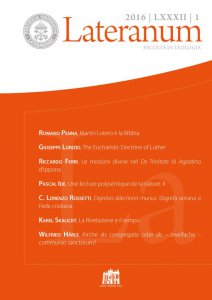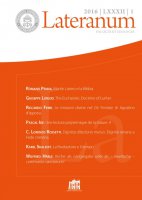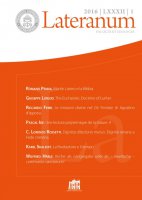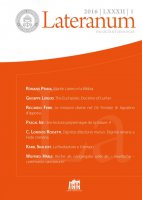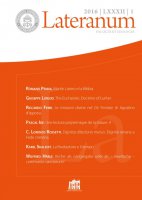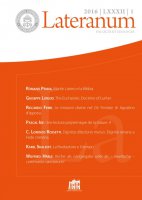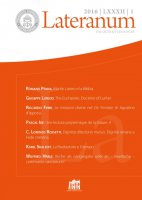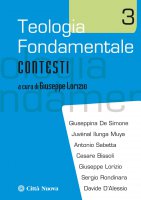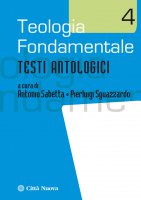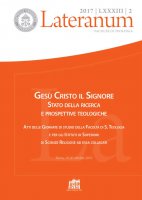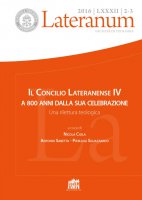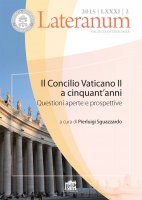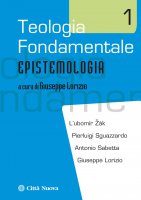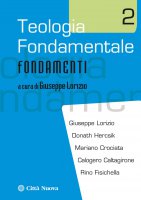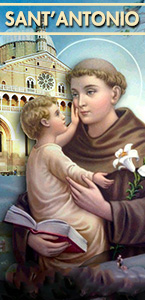Abstract
In line with a renewed relationship with Luther’s thought instead of a reductionist vision that tends to emphasize what the Lutheran theology negates, the article highlights the positive aspects in some of Luther’s writings on the sacrament of the Eucharist. From his Eucharistic Sermons to the Polemical and «Doctrinal» Works, an evolution can be disclosed. But the Eucharistic realism remains the underlying fundamental perspective based on the realism of the very mystery of Christ, of His incarnation, passion, death and resurrection, which no hypothetical formula could encase without reducing or removing it. In clear opposition to the “representationism” of his fellow reformers, the Father of the Reformation holds that the formula ist is not bedeutet, and affirms the realistic sacramentality of the Lord’s Supper, where the word of God actualizes what it expresses. The article fleshes out also three perspectives of interiority, otherness, and gratuity, which, along with Luther, can be discerned in the Eucharistic mystery-sacrament, seen in the light of Trinitarian ontology and agapic metaphysics.
Keywords
Luther, Reformed Tradition, Eucharist, sacrament, Trinitarian ontology, Christ
Abstract
In linea con un modo diverso di considerare Lutero, alternativo al riduttivismo che tende a enfatizzare ciò che la teologia luterana nega, l’articolo sottolinea la dottrina luterana sul sacramento dell’eucaristia in alcuni suoi scritti. Dai sermoni sull’eucarestia alle opere polemiche e dottrinali, si rivela un’evoluzione dentro cui però rimane fondamentale e costante il realismo del vero mistero di Cristo, della sua passione, morte e risurrezione. In aperta opposizione al “rappresentazionalismo” dei suoi seguaci riformatori, il Padre della riforma sostiene che la formula “ist” non va confusa con “significa” e afferma la sacramentalità reale della cena del Signore, dove la parola di Dio attualizza ciò che esprime. L’articolo abbozza anche tre prospettive – interiorità, alterità e gratuità – che con Lutero possono essere riconosciute nel mistero-sacramento dell’Eucarestia, considerato alla luce dell’ontologia trinitaria e della metafisica agapica.
Parole chiavi
Lutero, Tradizione Riformata, Eucarestia, Sacramento, Ontologia trinitaria, Cristo
__________________________________________________________
This reflection begins with a double difficulty. The first obstacle is the reverential fear with which I approach this exposition of Luther’s thought among specialists who certainly have a greater familiarity with, and understanding of, the Father of the Reformation than I do. At the same time, the fact that our shared work aims to reciprocally aid one another in the comprehension of what we profess and celebrate in our confessional belongings helps me overcome this first difficulty, otherwise insurmountable. The second challenge is a serious difficulty which derives from my first encounter with De captivitate. I experienced this text from the perspective of one who is, first of all, a Christian and Catholic priest who has sought to put the Eucharistic mystery, celebrated and lived in faith and devotion, at the center of faith and spirituality, as I was taught from the start of my preparation for First Communion and, as a young man, in the studies that led me to receive (thirty-five years ago) the gift of the priesthood, just as the Church to which I belong intends and lives it. I overcame this second dilemma with the knowledge of Luther’s own predicament when faced with a liturgical-sacramental praxis that had certainly deviated and was, by then, far from not only early Christianity but also the Gospel itself and its salvific word.
My hermeneutical position, which gives the perspective of this reflection, arises from the recognition of a reductionist vision of Lutheran theology that persists among Catholics. This vision especially tends to emphasize what the Lutheran tradition negates in relation to the Eucharistic mystery. This is evident not only in pre-Vatican II manualist works, but also in certain misdirected readings of the liturgical reform that have accompanied and followed the Council, almost as if the reform had adopted a Lutheran and, in general, a Reformed approach to the celebration of the sacraments, in particular, the Eucharist.
A reading which is interesting, though substantially misleading, might be the one offered by an entry in the Dictionnaire de théologie catholique entitled Luther and authored by J. Paquier.1 Faced with these positions – which defining as outdated would be reductive – I have deliberately chosen to highlight first the positive aspects in Luther’s writings (not all of them, of course) on the sacrament of the Eucharist, addressing the light that he sheds on this fundamental mystery. Then, I will look at the shadows he casts, addressing what he often virulently but in a critically prophetic way seems to insist on negating. This hermeneutical perspective is in line with a renewed relationship with Luther’s thought, the path suggested by the scholars (among others) J. Wicks, our professor at the Gregorian, and Y. Congar. The latter, besides dedicating a substantial chapter of his work on Luther to Eucharistic doctrine, expressed his opinion in the following manner: in Catholic interpretations (primarily French) “Luther showed the greatness of his errors, but he and his life were seen under the sign of mediocrity (Denigle), of the pathological (Grisar), of subjectivity (Maritain). Certainly Luther carried all of this within himself, but also how many treasures! May God be praised: in the last fifty years, historians and Catholic theologians have taken a more authentic approach.”2
Naturally, the perspective of the fundamentum dynamicum fidei, which underlies our entire work, will animate the discussion, exchange of views, and debate with Lutheran theology.
My study will proceed in the following manner: 0. Contextual notes; 1. Luther’s sermons on the Lord’s Supper; 2. The polemical works (De captivitate and Against the Heavenly Prophets); 3. The crystallization of doctrine in the Catechisms and the Confessio augustana; 4. Excursus: reflections on celebration (lex orandi). I will follow a primarily chronological order, with some exceptions, namely the discussion of Luther’s 1534 Holy Thursday sermon in Section One.



